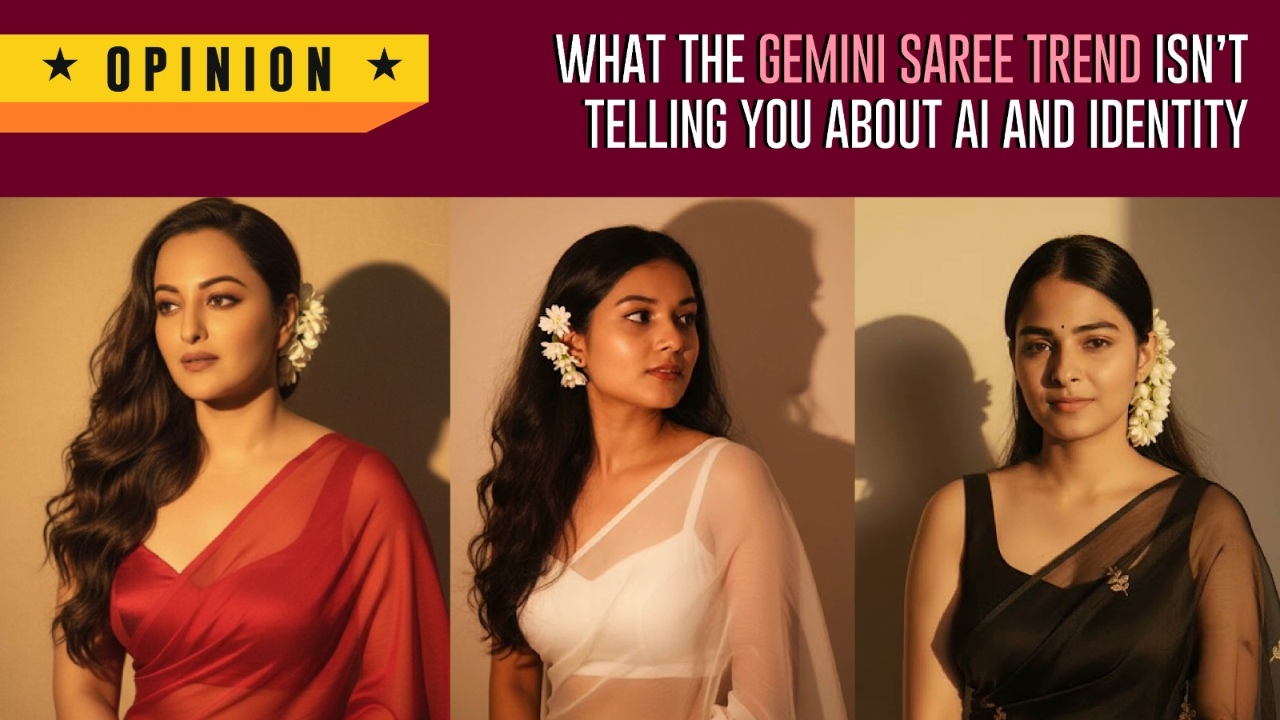When AI Recreates You, Who Are You Anymore?
The rise of AI image generators, like Google’s Gemini Nano “Banana” tool, has turned vanity into a viral sport. Saree edits. Retro Bollywood posters. Fake selfies with Shah Rukh Khan. Harmless fun, they say. But beneath the gloss and chiffon lies something more troubling: the slow erosion of identity, privacy, and self-worth.
We’re feeding our faces to machines. In return, they feed us fantasy. Your image, stylised. Your features, reinterpreted. Your very likeness, bent into something more clickable, more aesthetic, more perfect. And with every viral trend, every moody saree filter and glossy AI portrait, we inch further from how we actually look, and closer to how the algorithm thinks we should.
It’s stunning. But it’s also deeply disorienting.
Because this isn’t just a filter. It’s a replacement. And when the AI knows where your moles are, even ones you didn’t show, it stops being amusing and starts being alarming. One user recently discovered her AI-edited image included a mole that didn’t exist in the original photo. A “creepy coincidence”? Or a glimpse into how invasive and predictive these systems really are?
AI doesn’t just remix your face. It mines your data, infers your features, and, without clear consent, reimagines your reality. Your photos might not be saved, but your essence lingers in the system. The tools come wrapped in pastel UX and playful prompts. But the risks are coded deep into their DNA.
We’re not just editing photos anymore. We’re outsourcing our self-perception.
What happens when the AI version of you gets more likes than the real one? When the synthetic you becomes the preferred you? That quiet shift—subtle, but corrosive—chips away at self-image. We start chasing the AI illusion. Facial dysmorphia, filter fatigue, digital identity crisis—it’s all baked into the pixels.
Meanwhile, the companies behind these tools preach safety. They tout watermarking (SynthID), metadata tagging, and ethical AI. But the average user can’t verify any of it. Invisible watermarks? Not publicly detectable. Privacy policies? Obscure at best. Accountability? Optional.
The tech is moving faster than our laws, and far faster than our awareness.
So yes, the edits are beautiful. The trends are fun. But the cost? It’s personal. It’s your image, your data, your self-perception. And if you’re not careful, one day you’ll look in the mirror—and see a face that no longer feels like yours.
AI didn’t steal your identity. You gave it away—one filter at a time.

